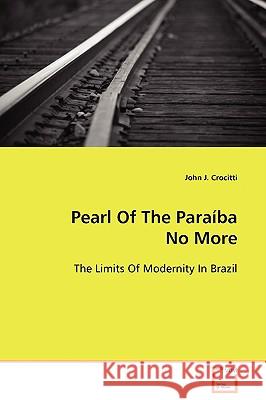Pearl Of The Paraíba No More » książka
Pearl Of The Paraíba No More
ISBN-13: 9783639085976 / Angielski / Miękka / 2008 / 272 str.
Pearl Of The Paraiba No More is a case study of Brazil's modernization over a thirty-year span during the mid-twentieth century. This detailed study of Barra do Pirai, a railroad junction and commercial center in the Paraiba Valley, shows that only a portion of the local population enjoyed the benefits of modernization. In particular, people from the surrounding, impoverished countryside who migrated to Barra do Pirai typically settled on hills in the city's periphery that lacked clean drinking water, sewerage systems, public schools, medical posts, and police protection. At the same time, however, people demanded that modernization's promises be fulfilled. In addition, modernization of local culture encouraged youths to behave in ways often deemed inappropriate by their elders. Finally, as the city entered the 1960s, crime became a serious concern and raised fears that dangerous social outcasts, referred to as marginais (marginals), would overtake the city. Confronted with these problems, few people opposed the military dictators who might deliver modernization's benefits and restore social order after their coup d'etat in 1964."
Pearl Of The Paraíba No More is a case study of Brazils modernization over a thirty-year span during the mid-twentieth century. This detailed study of Barra do Piraí, a railroad junction and commercial center in the Paraíba Valley, shows that only a portion of the local population enjoyed the benefits of modernization. In particular, people from the surrounding, impoverished countryside who migrated to Barra do Piraí typically settled on hills in the citys periphery that lacked clean drinking water, sewerage systems, public schools, medical posts, and police protection. At the same time, however, people demanded that modernizations promises be fulfilled. In addition, modernization of local culture encouraged youths to behave in ways often deemed inappropriate by their elders.Finally, as the city entered the 1960s, crime became a serious concern and raised fears that dangerous social outcasts, referred to as marginais (marginals), would overtake the city. Confronted with these problems, few people opposed the military dictators who might deliver modernizations benefits and restore social order after their coup detat in 1964.











